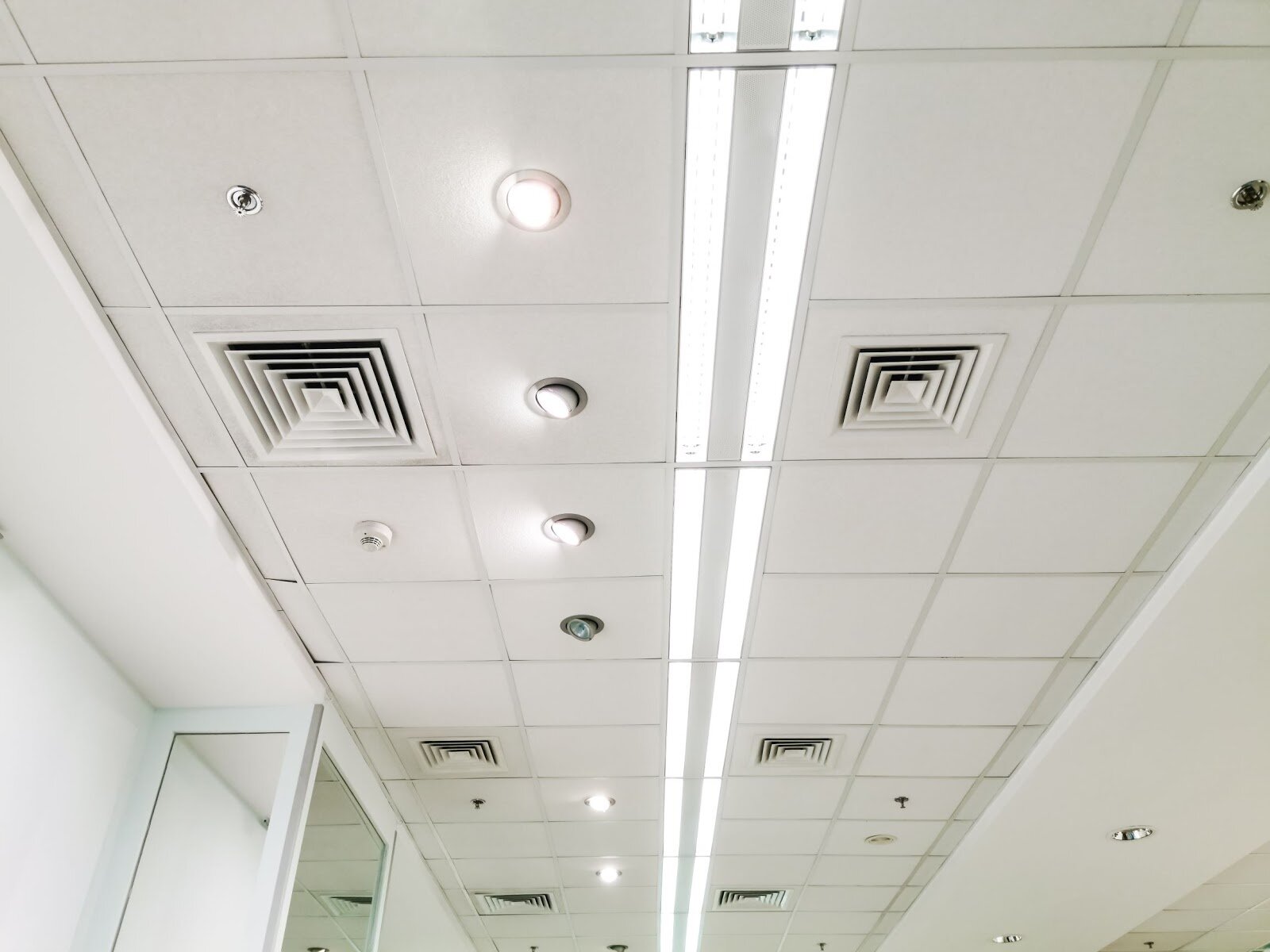

Articles
What Is A Ceiling Tile Made Of
Modified: October 28, 2024
Discover what ceiling tiles are made of in this informative article. Explore the different materials used and find the perfect ceiling tile for your space.
(Many of the links in this article redirect to a specific reviewed product. Your purchase of these products through affiliate links helps to generate commission for Storables.com, at no extra cost. Learn more)
Introduction
Ceiling tiles are an essential component of the modern construction industry. Installed in both residential and commercial buildings, ceiling tiles not only serve functional purposes but also contribute to the overall aesthetic appeal of a space. These versatile additions offer a wide range of benefits, such as acoustical improvement, thermal insulation, fire resistance, and easy maintenance.
In order to fully understand the characteristics and advantages of ceiling tiles, it is important to explore the various materials that they are made of. Each type of ceiling tile material has its own unique properties, which make it suitable for different applications and environments.
In this article, we will delve into the different materials used in the manufacturing of ceiling tiles and discuss their properties, manufacturing processes, advantages, and disadvantages. By gaining insight into the composition and qualities of these materials, you will be able to make informed decisions when choosing the most suitable ceiling tile for your space.
Key Takeaways:
- Wood ceiling tiles offer a natural and timeless beauty, adding warmth and elegance to any space. They provide a unique aesthetic, but require regular maintenance and may be more susceptible to moisture damage.
- When choosing wood ceiling tiles, consider their natural beauty, warmth, and design versatility. However, be mindful of their higher cost, maintenance needs, susceptibility to moisture damage, and limited fire resistance.
Read more: What Is A Ceiling Made Of
What is Ceiling Tile?
Ceiling tile, also known as ceiling panel or ceiling board, is a lightweight construction material that is suspended from the ceiling structure. It is used to create a finished surface on the underside of the roof or upper floor, concealing wiring, pipes, and other utilities that run above the ceiling. Ceiling tiles are commonly used in both residential and commercial buildings, such as offices, schools, hospitals, and retail spaces.
Ceiling tiles come in various shapes, sizes, and designs to cater to different architectural styles and functional requirements. They can be easily installed and provide an aesthetically pleasing finish to a room. Ceiling tiles offer numerous benefits, including enhancing the acoustics of a space, improving thermal insulation, adding fire resistance, and reducing energy costs.
Types of Ceiling Tile Materials
Ceiling tiles can be made from different materials, each with its own set of properties and advantages. Here are some of the most common types of ceiling tile materials:
Mineral Fiber
Mineral fiber ceiling tiles are made from a combination of mineral wool, starch, and binders. These tiles are known for their excellent acoustical properties, as they absorb sound and reduce noise levels in a room. They are also highly fire-resistant, making them a popular choice for commercial buildings. Mineral fiber ceiling tiles are durable, easy to install, and available in various designs.
Fiberglass
Fiberglass ceiling tiles are made from thin strands of glass fibers that are bonded together with resin. These tiles are lightweight, resistant to moisture and mold, and provide good thermal insulation. Fiberglass ceiling tiles are available in a wide range of colors, textures, and patterns, allowing for versatile design options. They are commonly used in areas with high humidity, such as bathrooms and kitchens.
Read more: What Are Floor Tiles Made Of
Gypsum
Gypsum ceiling tiles, also known as plasterboard or drywall, are made from a layer of gypsum plaster sandwiched between two layers of paper. These tiles are easy to install and offer excellent fire resistance. Gypsum ceiling tiles are known for their smooth and seamless finish, making them suitable for creating a clean, modern look. They can be painted or decorated to match the desired aesthetic.
Metal
Metal ceiling tiles are made from aluminum or steel and offer a sleek and industrial appearance. They are highly durable and resistant to moisture, mold, and mildew. Metal ceiling tiles are commonly used in commercial buildings and areas that require a high level of hygiene, such as food preparation areas or healthcare facilities. They are available in various finishes, including polished, perforated, or embossed.
Wood
Wood ceiling tiles add a warm and natural aesthetic to a space. They are made from solid wood or engineered wood products and are available in different grains and finishes. Wood ceiling tiles are durable and offer good acoustic properties, absorbing sound and reducing echo. They are commonly used in residential settings, restaurants, or spaces that require a cozy and welcoming atmosphere.
Mineral Fiber Ceiling Tiles
Mineral fiber ceiling tiles are one of the most common and versatile types of ceiling tiles available on the market. These tiles are composed of a combination of mineral wool, starch, and binders, which are compressed and formed into panels. The mineral fiber material used in these tiles is typically made from recycled glass or slag, making them an eco-friendly choice.
Mineral fiber ceiling tiles are known for their excellent acoustical properties. The porous structure of the tiles allows them to absorb sound and reduce noise levels within a space, making them ideal for areas where noise control is important, such as offices, classrooms, and conference rooms. These tiles can significantly improve the acoustic comfort of a room by reducing echo and reverberation.
In addition to their acoustical benefits, mineral fiber ceiling tiles offer other advantages. They are highly fire-resistant, adding an extra layer of safety to buildings. The mineral fibers used in the tiles have low combustibility and can withstand high temperatures, providing a barrier against the spread of fire. This makes them a popular choice for commercial buildings, where fire safety regulations are stringent.
Another advantage of mineral fiber ceiling tiles is their durability. They are resistant to sagging and warping over time, ensuring a long lifespan and minimal maintenance requirements. Additionally, these tiles are moisture-resistant, making them suitable for areas with high humidity, such as basements or bathrooms. The moisture-resistant properties help to prevent mold and mildew growth, contributing to a healthier indoor environment.
Mineral fiber ceiling tiles come in a wide range of designs, textures, and sizes to suit various architectural styles and design preferences. They can be installed in different patterns, such as square, rectangular, or even custom shapes, allowing for creative and visually appealing ceiling designs. The tiles can be painted or coated to achieve the desired aesthetic and can integrate lighting fixtures and ventilation systems seamlessly.
However, it is important to note that mineral fiber ceiling tiles may contain trace amounts of formaldehyde, a volatile organic compound (VOC) that can be released into the air. While the levels are generally low and within the acceptable limits set by regulatory bodies, it is advisable to choose low VOC or formaldehyde-free options if indoor air quality is a concern.
In summary, mineral fiber ceiling tiles are a popular choice due to their excellent acoustical performance, fire resistance, durability, and versatility in design. They offer a practical and aesthetically pleasing solution for creating functional and visually appealing ceilings in various settings.
Read more: How To Tile A Shower Ceiling
Fiberglass Ceiling Tiles
Fiberglass ceiling tiles are a popular choice for both residential and commercial spaces due to their unique properties and advantages. These tiles are made from thin strands of glass fibers that are bonded together using a resin. The resulting fiberglass material is lightweight, durable, and offers several benefits.
One of the primary advantages of fiberglass ceiling tiles is their resistance to moisture and mold. Unlike traditional ceiling materials, fiberglass does not absorb water, making it highly resistant to moisture damage. This makes fiberglass ceiling tiles an excellent choice for areas with high humidity levels, such as bathrooms, kitchens, and swimming pool enclosures.
In addition to their moisture resistance, fiberglass ceiling tiles provide good thermal insulation properties. The air pockets within the fiberglass material trap heat, creating a barrier and helping to prevent heat transfer between the ceiling and the room below. This insulation can contribute to energy efficiency by reducing heating and cooling costs.
Another key benefit of fiberglass ceiling tiles is their design versatility. They are available in a wide range of colors, textures, and patterns, allowing for creative and customized ceiling designs. Whether you prefer a sleek and modern look or a more textured and ornamental finish, fiberglass ceiling tiles can accommodate various aesthetic preferences.
Fiberglass ceiling tiles also have excellent acoustical properties. The fibers in the material absorb sound, reducing echo and noise levels in a room. This makes fiberglass tiles a popular choice for spaces where noise control is important, such as offices, conference rooms, and educational facilities. The acoustic improvement provided by these tiles contributes to a more comfortable and productive environment.
Installation and maintenance of fiberglass ceiling tiles are relatively easy. The lightweight nature of fiberglass ensures hassle-free installation, allowing for quick and efficient placement of the tiles. Additionally, fiberglass tiles are resistant to stains and can be easily cleaned with mild detergent and water, ensuring long-lasting beauty and low maintenance requirements.
It is important to note that fiberglass ceiling tiles may release small particles or fibers into the air during installation or removal. These fibers can cause skin irritation, eye irritation, or respiratory issues if proper safety measures are not taken. Therefore, it is recommended to wear protective clothing and masks when working with fiberglass ceiling tiles.
In summary, fiberglass ceiling tiles offer excellent moisture resistance, thermal insulation, design versatility, and sound absorption properties. These qualities make them a popular choice for various applications, providing both functional and aesthetic benefits to any space.
Gypsum Ceiling Tiles
Gypsum ceiling tiles, also known as plasterboard or drywall, are a popular choice for both residential and commercial spaces due to their unique properties and advantages. These tiles are made by compressing a layer of gypsum plaster between two layers of paper, creating a sturdy and versatile construction material.
One of the key benefits of gypsum ceiling tiles is their smooth and seamless finish. The surface of gypsum tiles is easy to paint or decorate, allowing for endless design possibilities. Whether you prefer a minimalist white ceiling or a vibrant and colorful one, gypsum tiles can be customized to match your desired aesthetic.
Another advantage of gypsum ceiling tiles is their excellent fire resistance. The gypsum plaster core in these tiles contains a high percentage of water, which acts as a natural fire retardant. During a fire, the water content is slowly released as steam, effectively slowing down the spread of flames. This fire resistance makes gypsum ceiling tiles a safe choice for both residential and commercial buildings.
Gypsum ceiling tiles also offer good acoustic properties. The dense nature of the gypsum material helps absorb sound, reducing echo and noise levels in a room. This makes gypsum tiles suitable for spaces where noise control is important, such as offices, classrooms, and entertainment venues.
Installation of gypsum ceiling tiles is relatively straightforward. The tiles can be easily cut to fit any size or shape of the ceiling. They are typically installed by attaching them to a network of metal or wooden frames, creating a suspended ceiling system. This method allows for easy access to the area above the ceiling, making maintenance and repairs convenient.
Gypsum ceiling tiles are also known for their durability. They resist sagging and warping over time, ensuring a long lifespan and minimal maintenance requirements. In addition, gypsum is a mold and moisture-resistant material, making it suitable for areas with high humidity. However, it is important to address any sources of moisture or leaks to prevent mold or mildew growth on the tiles.
It is worth noting that gypsum ceiling tiles can be heavy, so proper installation techniques and support structures are crucial. It is recommended to consult with professionals or follow manufacturer guidelines for safe and secure installation.
In summary, gypsum ceiling tiles offer a smooth and seamless finish, excellent fire resistance, good acoustic properties, and durability. These qualities make them a popular choice for both functional and aesthetically pleasing ceilings in various settings.
Metal Ceiling Tiles
Metal ceiling tiles are a popular choice for a range of spaces, from residential to commercial, due to their durability, versatility, and aesthetic appeal. Made from aluminum or steel, these tiles offer a sleek and modern look that can enhance the overall design of a room.
One of the key advantages of metal ceiling tiles is their exceptional durability. Metal is a highly resistant material that can withstand wear and tear, making it suitable for high-traffic areas. These tiles are resistant to damage from impact, scratches, and moisture, ensuring a long-lasting, low-maintenance ceiling surface.
Metal ceiling tiles also offer excellent moisture resistance, making them suitable for areas prone to high humidity or moisture, such as bathrooms or kitchens. They are less susceptible to mold or mildew growth compared to other materials, contributing to a healthier indoor environment.
Another benefit of metal ceiling tiles is their fire resistance. Aluminum and steel are non-combustible materials, providing an added level of safety in case of fire. This makes metal tiles a popular choice for commercial buildings and areas that require strict fire safety standards.
Metal ceiling tiles are available in a variety of finishes, including polished, perforated, or embossed designs. This versatility allows for creative and unique ceiling designs that can complement various architectural styles. The reflective nature of metal can also help enhance the brightness of a space, making it appear more spacious and well-lit.
In addition to their visual appeal, metal ceiling tiles offer excellent acoustical properties. The perforated designs allow for sound absorption, reducing reverberation and echo in a room. This makes metal tiles suitable for spaces where noise control is important, such as offices, restaurants, or lecture halls.
Installation of metal ceiling tiles is typically done using a suspension system of metal grids. These systems allow for ease of installation and provide a secure and stable foundation for the tiles. Metal tiles can be easily cut or shaped to fit any area, making customization and installation hassle-free.
When it comes to maintenance, metal ceiling tiles are relatively easy to clean. They can be wiped down with a damp cloth or mild detergent to remove any dust or dirt. Regular maintenance will help preserve the shine and appearance of the tiles.
Overall, metal ceiling tiles offer durability, moisture resistance, fire resistance, and design versatility. They provide a sleek and modern look, making them a popular choice for contemporary spaces that require both functionality and visual appeal.
Wood Ceiling Tiles
Wood ceiling tiles add warmth, elegance, and a natural aesthetic to any space. They are a popular choice for residential settings, restaurants, and spaces that require a cozy and welcoming atmosphere. Wood ceiling tiles can be made from solid wood or engineered wood products, such as plywood or medium-density fiberboard (MDF).
One of the primary advantages of wood ceiling tiles is their natural beauty. The grain patterns and textures of wood add a unique and visually appealing element to a room. Wood tiles come in a variety of species, including oak, cedar, pine, and walnut, offering a wide range of color options and finishes to suit different design preferences.
Wood ceiling tiles are typically manufactured through a multi-step process. The process can vary depending on whether solid wood or engineered wood is used:
Read more: How To Cut Ceiling Tile
Manufacturing Process for Solid Wood Tiles:
- Wood Selection: High-quality wood is sourced and selected based on desired characteristics, such as grain pattern, color, and durability.
- Milling: The selected wood is cut into boards of the desired size and thickness.
- Machining: The boards are planed, sanded, and shaped to create the desired tile profile and edges.
- Finishing: The wood tiles are stained, sealed, or coated with protective finishes to enhance their appearance and provide durability.
- Packaging: The finished wood tiles are carefully packaged and prepared for shipping or installation.
Manufacturing Process for Engineered Wood Tiles:
- Wood Fiber Processing: Wood fibers or particles are obtained from sustainable sources and processed into the desired size and consistency.
- Blending with Adhesive: The wood fibers or particles are mixed with a resin adhesive, which helps bind the wood fibers together.
- Pressing and Forming: The wood mixture is placed into molds and pressed under high temperature and pressure to create solid and stable wood panels.
- Machining: The engineered wood panels are machined to the desired shape, size, and design, replicating the look and feel of natural wood.
- Finishing: The wood tiles are finished with stains, paints, or protective coatings to enhance their appearance and provide durability.
- Packaging: The finished engineered wood tiles are carefully packaged and prepared for shipping or installation.
By using sustainable wood sources and responsible manufacturing practices, wood ceiling tiles can also be an environmentally friendly choice. Opting for certified sustainable wood can help minimize the impact on forests and promote the conservation of natural resources.
It is important to note that wood ceiling tiles require proper care and maintenance to preserve their beauty and longevity. Regular cleaning, dusting, and occasional refinishing or resealing may be needed to protect the wood and maintain its appearance over time.
In summary, wood ceiling tiles offer natural beauty, a warm aesthetic, and a wide range of design options. Whether made from solid wood or engineered wood, these tiles can create a cozy and inviting ambiance in any space.
Mineral Fiber Ceiling Tiles
Mineral fiber ceiling tiles are a popular choice for both residential and commercial spaces due to their versatility, durability, and excellent acoustical properties. These tiles are manufactured using a combination of mineral wool, starch, and binders, which are compressed and formed into panels.
One of the key advantages of mineral fiber ceiling tiles is their exceptional sound absorption capabilities. The porous structure of the tiles allows them to effectively absorb and reduce noise levels within a space, making them ideal for areas where noise control is important, such as offices, classrooms, and restaurants. The acoustical improvement provided by mineral fiber tiles creates a more comfortable and productive environment.
In addition to their acoustical benefits, mineral fiber ceiling tiles offer other advantages. They are highly durable and resistant to sagging and warping over time, ensuring a long lifespan and minimal maintenance requirements. These tiles can also contribute to fire safety, as the mineral fibers used in their composition have low combustibility and can withstand high temperatures.
Mineral fiber ceiling tiles are moisture-resistant, making them suitable for areas with high humidity levels. The mineral wool material used in the tiles repels moisture and prevents the growth of mold and mildew, contributing to a healthier indoor environment. These tiles are commonly used in spaces such as bathrooms, kitchens, and basements.
The manufacturing process for mineral fiber ceiling tiles involves the following steps:
- Raw Material Preparation: The mineral wool, starch, and binders are mixed together to create a homogeneous blend.
- Forming Process: The blended material is fed into a forming machine where it is shaped into panels. The panels can be produced in various sizes and thicknesses.
- Drying and Curing: The formed panels are dried and cured to remove excess moisture and strengthen the structure of the tiles.
- Finishing and Coating: The tiles can be coated with a finish to enhance their appearance and provide additional protection against moisture or staining.
- Packaging and Distribution: The finished mineral fiber ceiling tiles are packaged and distributed to retailers or construction sites.
Mineral fiber ceiling tiles come in a wide range of designs, textures, and sizes to suit different architectural styles. They can be installed in various patterns, such as square, rectangular, or even custom shapes, allowing for creative and visually appealing ceiling designs. These tiles can be painted or coated with different finishes to achieve the desired aesthetic and seamlessly integrate lighting fixtures and ventilation systems.
It is important to note that mineral fiber ceiling tiles may contain trace amounts of formaldehyde, a volatile organic compound (VOC). While the levels are generally low and within the acceptable limits set by regulatory bodies, it is advisable to choose low VOC or formaldehyde-free options if indoor air quality is a concern.
In summary, mineral fiber ceiling tiles offer excellent sound absorption, durability, moisture resistance, and fire resistance. They provide a versatile and aesthetically pleasing solution for creating functional and visually appealing ceilings in various settings.
Read more: How To Tile A Shower Ceiling
Fiberglass Ceiling Tiles
Fiberglass ceiling tiles are a popular choice for both residential and commercial spaces due to their unique properties and advantages. These tiles are made from thin strands of glass fibers that are bonded together using a resin. The resulting fiberglass material is lightweight, durable, and offers several benefits.
One of the primary advantages of fiberglass ceiling tiles is their resistance to moisture and mold. Unlike traditional ceiling materials, fiberglass does not absorb water, making it highly resistant to moisture damage. This makes fiberglass ceiling tiles an excellent choice for areas with high humidity levels, such as bathrooms, kitchens, and swimming pool enclosures.
In addition to their moisture resistance, fiberglass ceiling tiles provide good thermal insulation properties. The air pockets within the fiberglass material trap heat, creating a barrier and helping to prevent heat transfer between the ceiling and the room below. This insulation can contribute to energy efficiency by reducing heating and cooling costs.
Another key benefit of fiberglass ceiling tiles is their design versatility. They are available in a wide range of colors, textures, and patterns, allowing for creative and customized ceiling designs. Whether you prefer a sleek and modern look or a more textured and ornamental finish, fiberglass ceiling tiles can accommodate various aesthetic preferences.
Fiberglass ceiling tiles also have excellent acoustical properties. The fibers in the material absorb sound, reducing echo and noise levels in a room. This makes fiberglass tiles a popular choice for spaces where noise control is important, such as offices, conference rooms, and educational facilities. The acoustic improvement provided by these tiles contributes to a more comfortable and productive environment.
Installation and maintenance of fiberglass ceiling tiles are relatively easy. The lightweight nature of fiberglass ensures hassle-free installation, allowing for quick and efficient placement of the tiles. Additionally, fiberglass tiles are resistant to stains and can be easily cleaned with mild detergent and water, ensuring long-lasting beauty and low maintenance requirements.
It is important to note that fiberglass ceiling tiles may release small particles or fibers into the air during installation or removal. These fibers can cause skin irritation, eye irritation, or respiratory issues if proper safety measures are not taken. Therefore, it is recommended to wear protective clothing and masks when working with fiberglass ceiling tiles.
In summary, fiberglass ceiling tiles offer excellent moisture resistance, thermal insulation, design versatility, and sound absorption properties. These qualities make them a popular choice for various applications, providing both functional and aesthetic benefits to any space.
Gypsum Ceiling Tiles
Gypsum ceiling tiles, also known as plasterboard or drywall, are a popular choice for both residential and commercial spaces due to their unique properties and advantages. These tiles are made by compressing a layer of gypsum plaster between two layers of paper, creating a sturdy and versatile construction material.
One of the key benefits of gypsum ceiling tiles is their smooth and seamless finish. The surface of gypsum tiles is easy to paint or decorate, allowing for endless design possibilities. Whether you prefer a minimalist white ceiling or a vibrant and colorful one, gypsum tiles can be customized to match your desired aesthetic.
Another advantage of gypsum ceiling tiles is their excellent fire resistance. The gypsum plaster core in these tiles contains a high percentage of water, which acts as a natural fire retardant. During a fire, the water content is slowly released as steam, effectively slowing down the spread of flames. This fire resistance makes gypsum ceiling tiles a safe choice for both residential and commercial buildings.
Gypsum ceiling tiles also offer good acoustic properties. The dense nature of the gypsum material helps absorb sound, reducing echo and noise levels in a room. This makes gypsum tiles suitable for spaces where noise control is important, such as offices, classrooms, and entertainment venues. The acoustic improvement provided by gypsum tiles creates a more comfortable and enjoyable environment.
Installation of gypsum ceiling tiles is relatively straightforward. The tiles can be easily cut to fit any size or shape of the ceiling. They are typically installed by attaching them to a network of metal or wooden frames, creating a suspended ceiling system. This method allows for easy access to the area above the ceiling, making maintenance and repairs convenient.
Gypsum ceiling tiles are also known for their durability. They resist sagging and warping over time, ensuring a long lifespan and minimal maintenance requirements. In addition, gypsum is a mold and moisture-resistant material, making it suitable for areas with high humidity. However, it is important to address any sources of moisture or leaks to prevent mold or mildew growth on the tiles.
It is worth noting that gypsum ceiling tiles can be heavy, so proper installation techniques and support structures are crucial. It is recommended to consult with professionals or follow manufacturer guidelines for safe and secure installation.
In summary, gypsum ceiling tiles offer a smooth and seamless finish, excellent fire resistance, good acoustic properties, and durability. They provide a versatile and aesthetically pleasing solution for creating functional and visually appealing ceilings in various settings.
Metal Ceiling Tiles
Metal ceiling tiles are a popular choice for a range of spaces, from residential to commercial, due to their durability, versatility, and aesthetic appeal. Made from aluminum or steel, these tiles offer a sleek and modern look that can enhance the overall design of a room.
One of the key advantages of metal ceiling tiles is their exceptional durability. Metal is a highly resistant material that can withstand wear and tear, making it suitable for high-traffic areas. These tiles are resistant to damage from impact, scratches, and moisture, ensuring a long-lasting, low-maintenance ceiling surface.
Metal ceiling tiles also offer excellent moisture resistance, making them suitable for areas prone to high humidity or moisture, such as bathrooms or kitchens. They are less susceptible to mold or mildew growth compared to other materials, contributing to a healthier indoor environment.
Another benefit of metal ceiling tiles is their fire resistance. Aluminum and steel are non-combustible materials, providing an added level of safety in case of fire. This makes metal tiles a popular choice for commercial buildings and areas that require strict fire safety standards.
Metal ceiling tiles are available in a variety of finishes, including polished, perforated, or embossed designs. This versatility allows for creative and unique ceiling designs that can complement various architectural styles. The reflective nature of metal can also help enhance the brightness of a space, making it appear more spacious and well-lit.
In addition to their visual appeal, metal ceiling tiles offer excellent acoustical properties. The perforated designs allow for sound absorption, reducing reverberation and echo in a room. This makes metal tiles suitable for spaces where noise control is important, such as offices, restaurants, or lecture halls.
Installation of metal ceiling tiles is typically done using a suspension system of metal grids. These systems allow for ease of installation and provide a secure and stable foundation for the tiles. Metal tiles can be easily cut or shaped to fit any area, making customization and installation hassle-free.
When it comes to maintenance, metal ceiling tiles are relatively easy to clean. They can be wiped down with a damp cloth or mild detergent to remove any dust or dirt. Regular maintenance will help preserve the shine and appearance of the tiles.
Overall, metal ceiling tiles offer durability, moisture resistance, fire resistance, and design versatility. They provide a sleek and modern look, making them a popular choice for contemporary spaces that require both functionality and visual appeal.
Wood Ceiling Tiles
Wood ceiling tiles add warmth, elegance, and a natural aesthetic to any space. They are a popular choice for residential settings, restaurants, and spaces that require a cozy and welcoming atmosphere. Wood ceiling tiles can be made from solid wood or engineered wood products, such as plywood or medium-density fiberboard (MDF).
Advantages of Wood Ceiling Tiles:
1. Natural Beauty: One of the primary advantages of wood ceiling tiles is their natural beauty. The grain patterns and textures of wood add a unique and visually appealing element to a room. Wood tiles come in a variety of species, including oak, cedar, pine, and walnut, offering a wide range of color options and finishes to suit different design preferences.
2. Warmth and Elegance: Wood has a timeless appeal that can create a warm and inviting ambiance in any space. The natural variations in color and texture make every wood ceiling tile unique. This helps to add character and sophistication to a room, enhancing its overall aesthetic.
3. Environmental Sustainability: Wood is a renewable and sustainable resource, making wood ceiling tiles an eco-friendly choice. Opting for tiles made from certified sustainable wood can help minimize the impact on forests and promote the conservation of natural resources.
4. Acoustic Properties: Wood ceiling tiles offer good acoustic properties. The solid nature of wood helps to absorb sound, reducing echo and noise levels in a room. This can create a more comfortable and tranquil environment, particularly in spaces where noise control is important.
5. Design Versatility: Wood ceiling tiles are highly versatile when it comes to design. They can be installed in various patterns, such as linear, herringbone, or geometric designs, allowing for creative and unique arrangements. Additionally, wood tiles can be stained, painted, or left unfinished, providing flexibility to match different design preferences.
Read more: How To Tell If Ceiling Tiles Are Asbestos
Disadvantages of Wood Ceiling Tiles:
1. Cost: Wood ceiling tiles can be more expensive compared to other materials, especially if high-quality or exotic wood species are chosen. The cost may vary depending on the type of wood and the manufacturing process.
2. Maintenance: Wood ceiling tiles require regular maintenance to preserve their beauty and longevity. Periodic cleaning, dusting, and occasional refinishing may be necessary to protect the wood and maintain its appearance over time.
3. Susceptibility to Moisture Damage: Wood is susceptible to moisture damage, including warping, swelling, and rot. It is important to ensure proper ventilation and address any sources of moisture in the space to prevent damage to the wood tiles. In high-humidity areas, it may be necessary to consider a protective coating or opt for engineered wood tiles with enhanced moisture resistance.
4. Limited Resistance to Fire: Wood is a combustible material and has limited resistance to fire when compared to other ceiling tile materials. It is important to adhere to fire safety regulations and consider fire-retardant treatments or coatings if required by building codes.
In summary, wood ceiling tiles offer natural beauty, warmth, and design versatility. They provide a unique and elegant look to any space. However, they require regular maintenance and may be more susceptible to moisture damage compared to other materials. It is important to weigh the advantages and disadvantages to determine if wood ceiling tiles are the right choice for your specific needs and preferences.
Mineral Fiber Ceiling Tiles
Mineral fiber ceiling tiles are a popular choice for both residential and commercial spaces due to their versatility, durability, and excellent acoustical properties. These tiles are manufactured using a combination of mineral wool, starch, and binders, which are compressed and formed into panels.
Advantages of Mineral Fiber Ceiling Tiles:
1. Superior Sound Absorption: One of the primary advantages of mineral fiber ceiling tiles is their exceptional sound absorption capabilities. The porous structure of the tiles allows them to effectively absorb and reduce noise levels within a space, making them ideal for areas where noise control is important, such as offices, classrooms, and restaurants. The acoustical improvement provided by mineral fiber tiles creates a more comfortable and productive environment.
2. Durability and Resistance: Mineral fiber ceiling tiles are highly durable and resistant to sagging and warping over time. They maintain their shape and integrity, ensuring a long lifespan and minimal maintenance requirements. Additionally, these tiles are resistant to moisture and humidity, making them suitable for areas prone to high moisture levels, such as bathrooms and basements.
3. Fire Resistance: Mineral fiber tiles have excellent fire resistance properties. The mineral fibers used in their composition have low combustibility and can withstand high temperatures. In the event of a fire, mineral fiber ceiling tiles act as a barrier, preventing the spread of flames and providing an added level of safety for occupants.
4. Aesthetically Pleasing: Mineral fiber ceiling tiles come in a wide range of designs, textures, and sizes to suit different architectural styles. They can be installed in various patterns, such as square, rectangular, or even custom shapes, allowing for creative and visually appealing ceiling designs. These tiles can be painted or coated with different finishes to achieve the desired aesthetic and seamlessly integrate lighting fixtures and ventilation systems.
Disadvantages of Mineral Fiber Ceiling Tiles:
1. Formaldehyde Emissions: Some mineral fiber ceiling tiles may contain trace amounts of formaldehyde, a volatile organic compound (VOC). While the levels are generally low and within the acceptable limits set by regulatory bodies, it is advisable to choose low VOC or formaldehyde-free options if indoor air quality is a concern.
2. Fragility during Handling: Mineral fiber ceiling tiles can be fragile and prone to breakage if mishandled during installation or removal. It is important to handle them with care and follow proper installation guidelines to prevent damage.
3. Limited Design Flexibility: While mineral fiber tiles offer a range of design options, they may not provide the same design versatility as other ceiling tile materials. The tiles cannot be easily reshaped or molded into complex designs, limiting the options for intricate or customized ceiling designs.
In summary, mineral fiber ceiling tiles offer excellent sound absorption, durability, moisture resistance, and fire resistance. They provide a versatile and aesthetically pleasing solution for creating functional and visually appealing ceilings in various settings. However, it is important to consider any potential emissions and handle the tiles with care during installation and removal.
Read more: How To Tile A Shower Ceiling
Fiberglass Ceiling Tiles
Fiberglass ceiling tiles are a popular choice for both residential and commercial spaces due to their unique properties and advantages. These tiles are made from thin strands of glass fibers that are bonded together using a resin. The resulting fiberglass material is lightweight, durable, and offers several benefits.
Advantages of Fiberglass Ceiling Tiles:
1. Moisture Resistance: One of the primary advantages of fiberglass ceiling tiles is their resistance to moisture and water damage. Unlike traditional ceiling materials, fiberglass does not absorb water, making it highly resistant to sagging, warping, or mold growth. This makes fiberglass ceiling tiles an excellent choice for areas that are prone to moisture, such as bathrooms, kitchens, and swimming pool enclosures.
2. Thermal Insulation: Fiberglass ceiling tiles offer good thermal insulation properties. The air pockets within the fiberglass material trap heat, creating a barrier and helping to prevent heat loss or gain between the ceiling and the room below. This insulation can contribute to energy efficiency by reducing heating and cooling costs.
3. Design Versatility: Fiberglass ceiling tiles are available in a wide range of colors, textures, and patterns, allowing for creative and customized ceiling designs. Whether you prefer a sleek and modern look or a more textured and ornamental finish, fiberglass ceiling tiles can accommodate various aesthetic preferences. They can be installed in different patterns, such as square, rectangle, or even custom shapes, providing design flexibility.
4. Ease of Installation and Maintenance: Fiberglass ceiling tiles are lightweight and easy to handle, making the installation process quick and efficient. They can be easily cut to fit any size or shape of the ceiling, allowing for hassle-free customization. Additionally, fiberglass ceiling tiles are resistant to stains and can be easily cleaned with mild detergent and water, ensuring long-lasting beauty and low maintenance requirements.
Disadvantages of Fiberglass Ceiling Tiles:
1. Skin and Eye Irritation: Fiberglass ceiling tiles can release small fibers or particles into the air during installation or removal. These fibers can cause skin irritation or eye irritation if proper safety measures are not taken. It is important to wear protective clothing and masks when working with fiberglass ceiling tiles to minimize any potential health risks.
2. Fragility: Fiberglass ceiling tiles can be relatively fragile and prone to breakage if mishandled during installation or removal. It is essential to handle them with care to avoid damage and ensure their longevity.
3. Limited Fire Resistance: While fiberglass itself is a non-combustible material, fiberglass ceiling tiles may have limited fire resistance compared to other materials. It is crucial to consider fire safety regulations and requirements when choosing fiberglass ceiling tiles for specific applications.
In summary, fiberglass ceiling tiles offer excellent moisture resistance, thermal insulation, design versatility, and ease of installation. They provide a practical and aesthetically pleasing solution for creating functional and visually appealing ceilings in various settings. However, it is important to take proper safety precautions during installation and consider any fire safety requirements specific to the project.
Gypsum Ceiling Tiles
Gypsum ceiling tiles, also known as plasterboard or drywall, are a popular choice for both residential and commercial spaces due to their unique properties and advantages. These tiles are made by compressing a layer of gypsum plaster between two layers of paper, creating a sturdy and versatile construction material.
Read also: 8 Best Ceiling Tile For 2025
Advantages of Gypsum Ceiling Tiles:
1. Smooth and Seamless Finish: One of the key benefits of gypsum ceiling tiles is their smooth and seamless finish. The surface of gypsum tiles is easy to paint or decorate, allowing for endless design possibilities. Whether you prefer a minimalist white ceiling or a vibrant and colorful one, gypsum tiles can be customized to match your desired aesthetic.
2. Excellent Fire Resistance: Gypsum ceiling tiles have exceptional fire resistance properties. The gypsum plaster core in these tiles contains a high percentage of water, which acts as a natural fire retardant. During a fire, the water content is slowly released as steam, effectively slowing down the spread of flames. This makes gypsum ceiling tiles a safe choice for both residential and commercial buildings.
3. Good Acoustic Properties: Gypsum ceiling tiles offer good acoustic properties. The dense nature of the gypsum material helps absorb sound, reducing echo and noise levels in a room. This makes gypsum tiles suitable for spaces where noise control is important, such as offices, classrooms, and entertainment venues. The acoustic improvement provided by gypsum tiles creates a more comfortable and enjoyable environment.
4. Easy Installation and Maintenance: Installation of gypsum ceiling tiles is relatively straightforward. The tiles can be easily cut to fit any size or shape of the ceiling. They are typically installed by attaching them to a network of metal or wooden frames, creating a suspended ceiling system. This method allows for easy access to the area above the ceiling, making maintenance and repairs convenient.
Disadvantages of Gypsum Ceiling Tiles:
1. Susceptibility to Moisture Damage: Gypsum ceiling tiles are susceptible to moisture damage, including warping, swelling, and crumbling, if exposed to excessive moisture or water leakage. It is important to ensure proper ventilation and address any sources of moisture in the space to prevent damage to the gypsum tiles.
2. Limited Design Flexibility: While gypsum ceiling tiles offer a smooth and seamless finish, they may not provide the same design versatility as some other ceiling tile materials. These tiles cannot be easily reshaped or molded into complex designs, limiting the options for intricate or customized ceiling designs.
3. Fragility: Gypsum ceiling tiles can be relatively fragile and prone to breakage if mishandled during installation or removal. It is essential to handle them with care to avoid damage and ensure their longevity.
In summary, gypsum ceiling tiles offer a smooth and seamless finish, excellent fire resistance, good acoustic properties, and easy installation. They provide a versatile and aesthetically pleasing solution for creating functional and visually appealing ceilings in various settings. However, it is important to consider potential moisture damage, handle the tiles with care, and assess design limitations when choosing gypsum ceiling tiles for specific applications.
Metal Ceiling Tiles
Metal ceiling tiles are a popular choice for a range of spaces, from residential to commercial, due to their durability, versatility, and aesthetic appeal. Made from aluminum or steel, these tiles offer a sleek and modern look that can enhance the overall design of a room.
Advantages of Metal Ceiling Tiles:
1. Superior Durability: Metal ceiling tiles are highly durable and resistant to wear and tear. They can withstand impact, scratches, and moisture, ensuring a long-lasting ceiling surface. This makes metal tiles suitable for high-traffic areas and spaces where durability is a priority.
2. Moisture Resistance: Metal ceiling tiles have excellent moisture resistance properties. They are resistant to water damage, such as warping or mold growth, making them suitable for areas prone to humidity or moisture, such as bathrooms or kitchens.
3. Fire Resistance: Metal ceiling tiles are non-combustible and offer excellent fire resistance. They do not contribute to the spread of flames, providing added safety in the event of a fire. This makes metal tiles a popular choice for commercial buildings or areas where fire safety is a concern.
4. Design Versatility: Metal ceiling tiles are available in a variety of finishes, including polished, perforated, or embossed designs. This versatility allows for creative and unique ceiling designs that can complement various architectural styles. The reflective nature of metal can also help enhance the brightness of a space, making it appear more spacious and well-lit.
Read more: How To Paint Drop Ceiling Tiles
Disadvantages of Metal Ceiling Tiles:
1. Higher Cost: Metal ceiling tiles can be more expensive compared to other materials, especially if high-quality or decorative finishes are chosen. The cost may vary depending on the type of metal and the intricacy of the design.
2. Noise Reflection: Metal tiles, especially those with smooth or polished finishes, can reflect sound waves rather than absorbing them, resulting in increased noise levels or echo in a room. This can be mitigated with the use of sound-absorbing materials or acoustical treatments.
3. Conductivity: Metal is a good conductor of heat and electricity. In certain environments or climates, metal ceiling tiles may contribute to heat loss or gain, leading to potential energy inefficiencies. Proper insulation or thermal barriers can help address this concern.
4. Installation Complexity: Installing metal ceiling tiles may require more expertise and precision compared to other materials. Proper installation techniques, such as ensuring a level and secure framework, are crucial for a successful and long-lasting ceiling.
In summary, metal ceiling tiles offer superior durability, moisture resistance, fire resistance, and design versatility. They provide a sleek and modern look, making them a popular choice for contemporary spaces that require both functionality and visual appeal. However, it is important to consider factors such as cost, noise reflection, conductivity, and installation complexity when selecting metal ceiling tiles for a specific project.
Conclusion
Wood ceiling tiles offer a natural and timeless beauty to any space, creating a warm and inviting atmosphere. Whether made from solid wood or engineered wood products, these tiles provide a unique aesthetic that adds elegance and sophistication to residential and commercial settings.
The advantages of wood ceiling tiles include their natural beauty, warmth, environmental sustainability, acoustical properties, and design versatility. They offer a wide range of options in terms of wood species, finishes, and patterns, allowing for customized and creative ceiling designs.
However, it is worth considering the disadvantages of wood ceiling tiles. These include the higher cost compared to other materials, the maintenance required to preserve their appearance and integrity, their susceptibility to moisture damage, and their limited fire resistance compared to some alternative materials.
In conclusion, wood ceiling tiles provide a unique and charming option for those seeking a natural and elegant ceiling. They add warmth and beauty to any space, making them particularly well-suited for residential settings, restaurants, and environments that require a cozy and inviting ambiance.
When selecting wood ceiling tiles, it is important to weigh the advantages and disadvantages, and consider factors such as budget, maintenance requirements, and specific environmental conditions. Proper installation and regular maintenance will help ensure the longevity and continued beauty of wood ceiling tiles.
Ultimately, wood ceiling tiles offer a timeless and sophisticated option for enhancing the aesthetic appeal of any room, and they can create a truly stunning ceiling that will stand the test of time.
Frequently Asked Questions about What Is A Ceiling Tile Made Of
Was this page helpful?
At Storables.com, we guarantee accurate and reliable information. Our content, validated by Expert Board Contributors, is crafted following stringent Editorial Policies. We're committed to providing you with well-researched, expert-backed insights for all your informational needs.
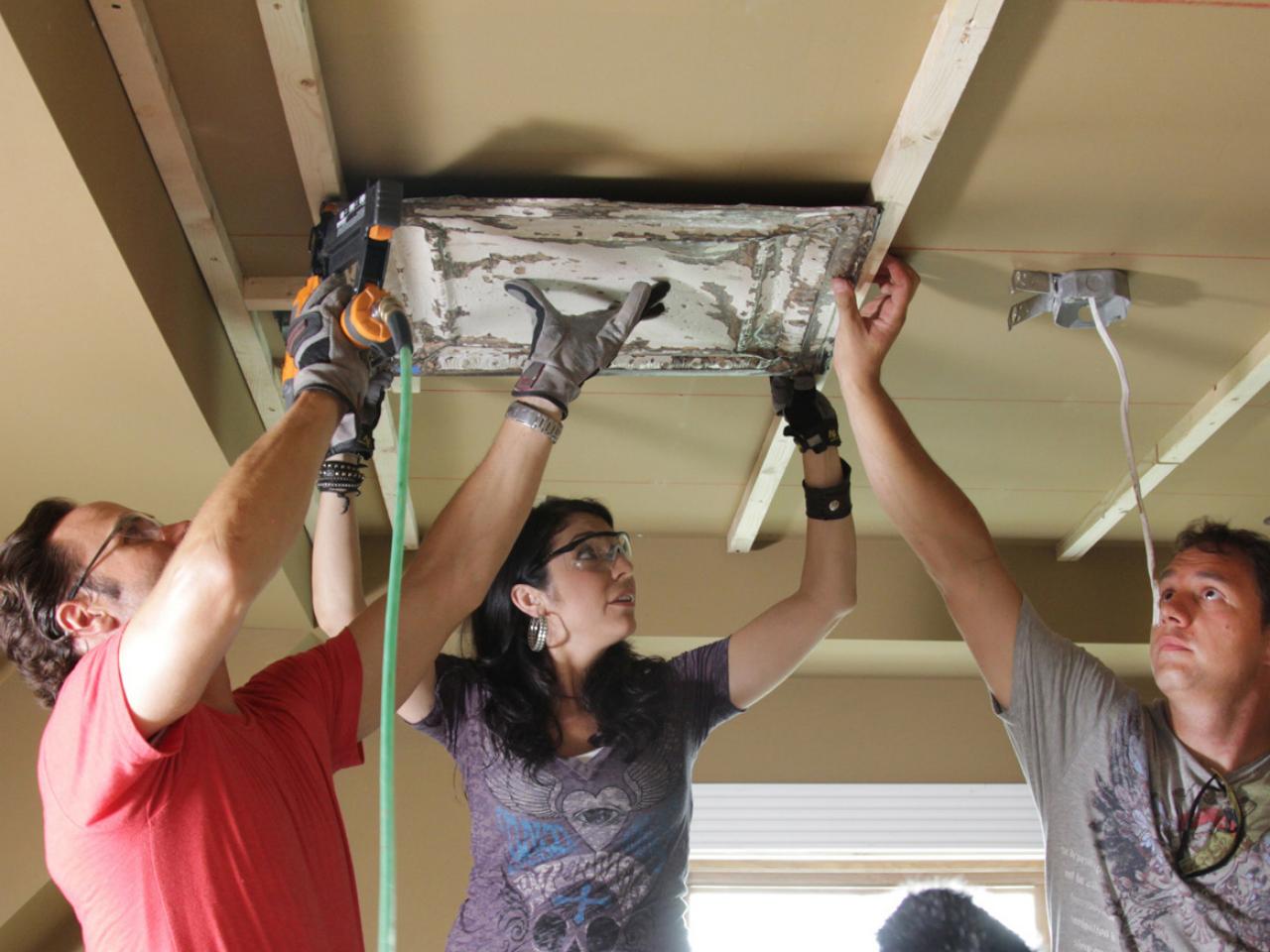
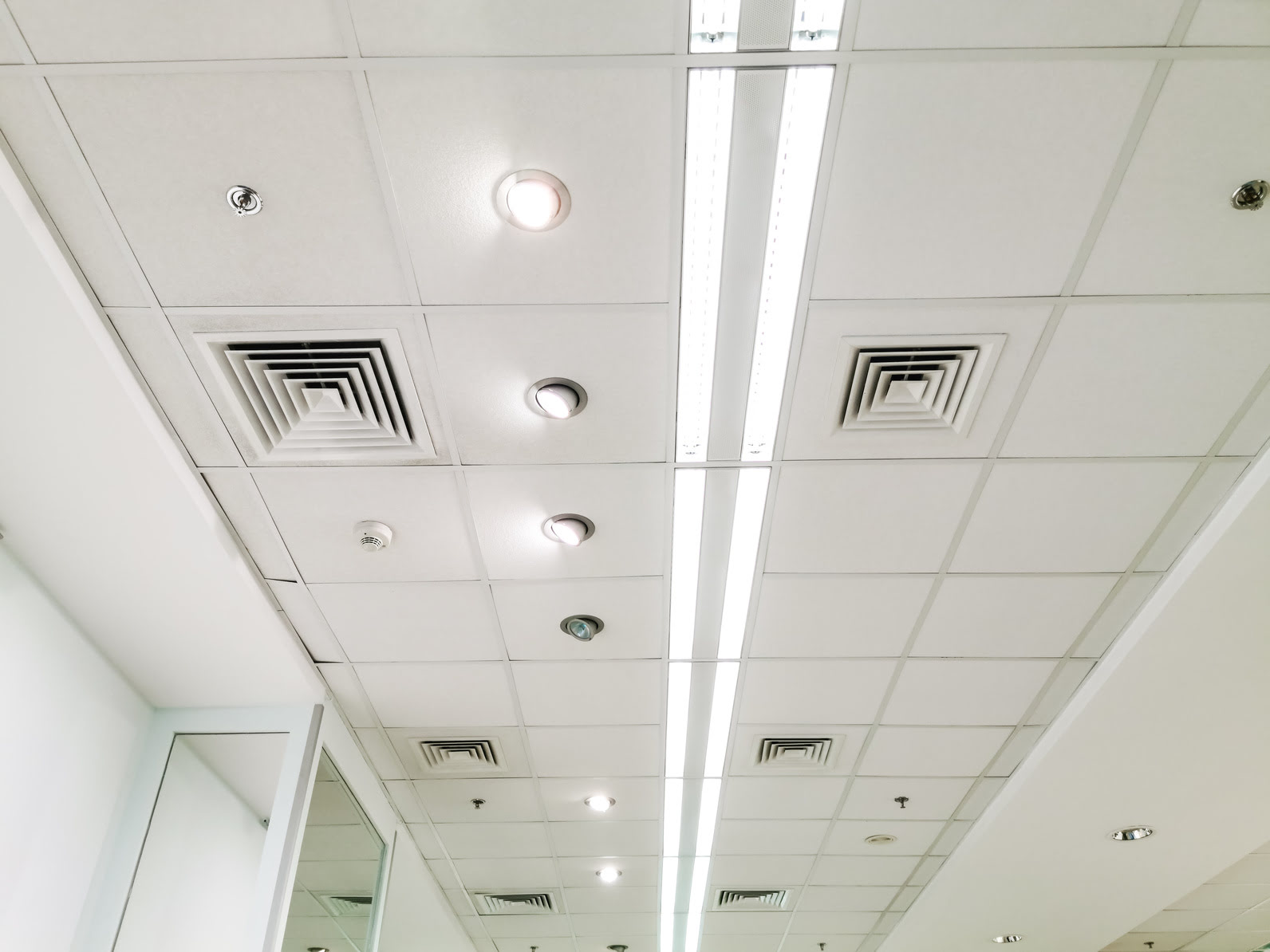

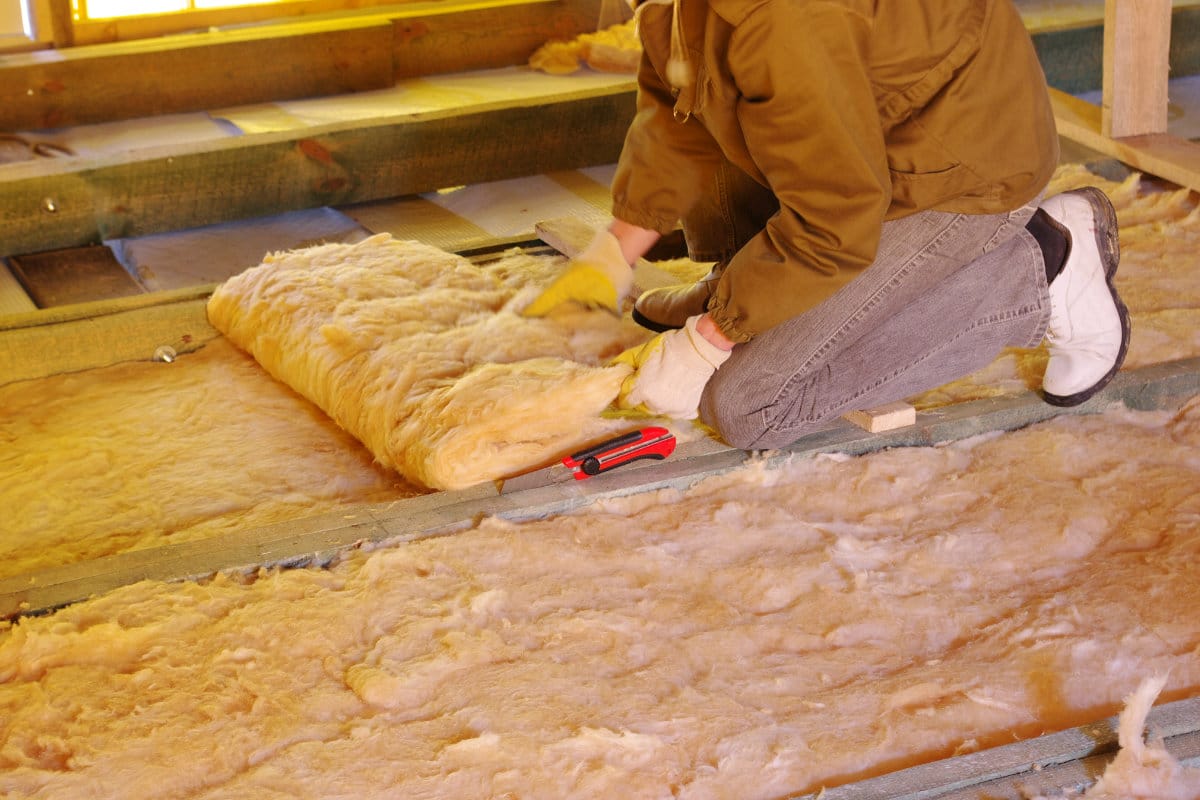


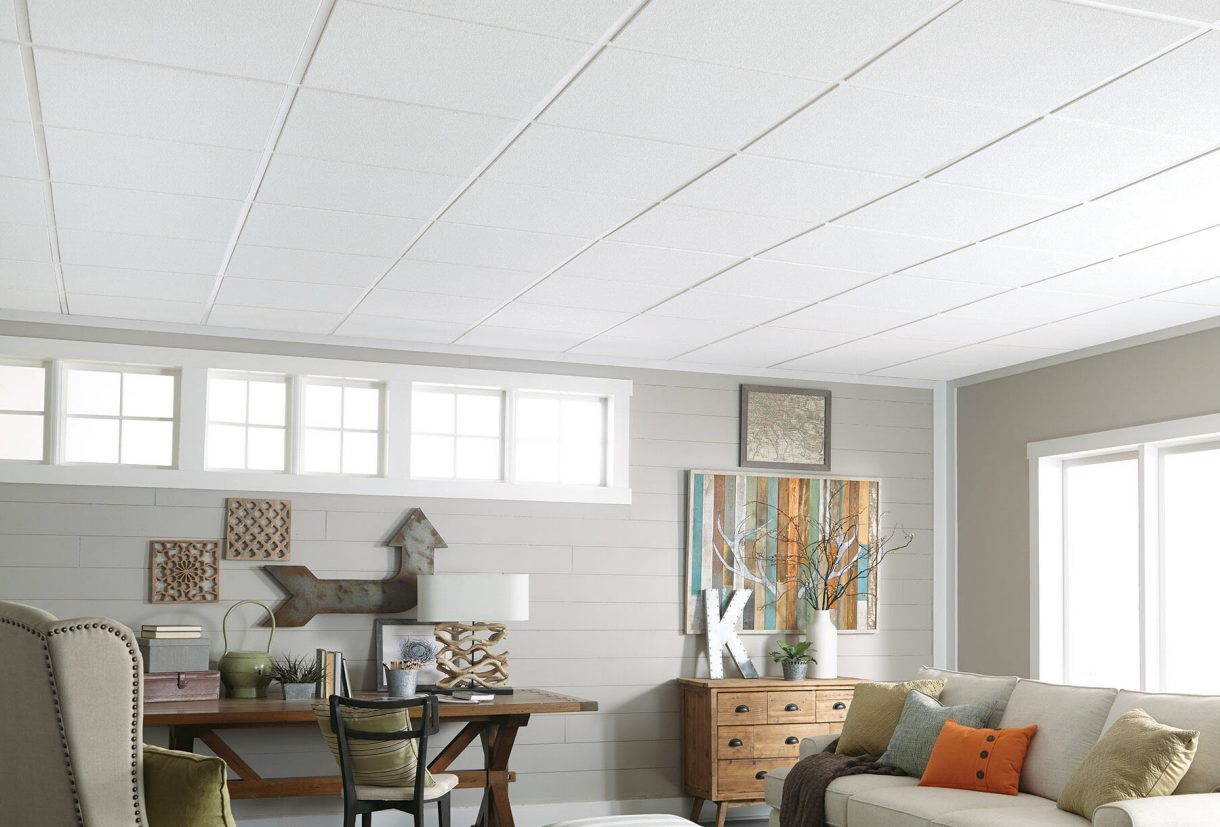

0 thoughts on “What Is A Ceiling Tile Made Of”